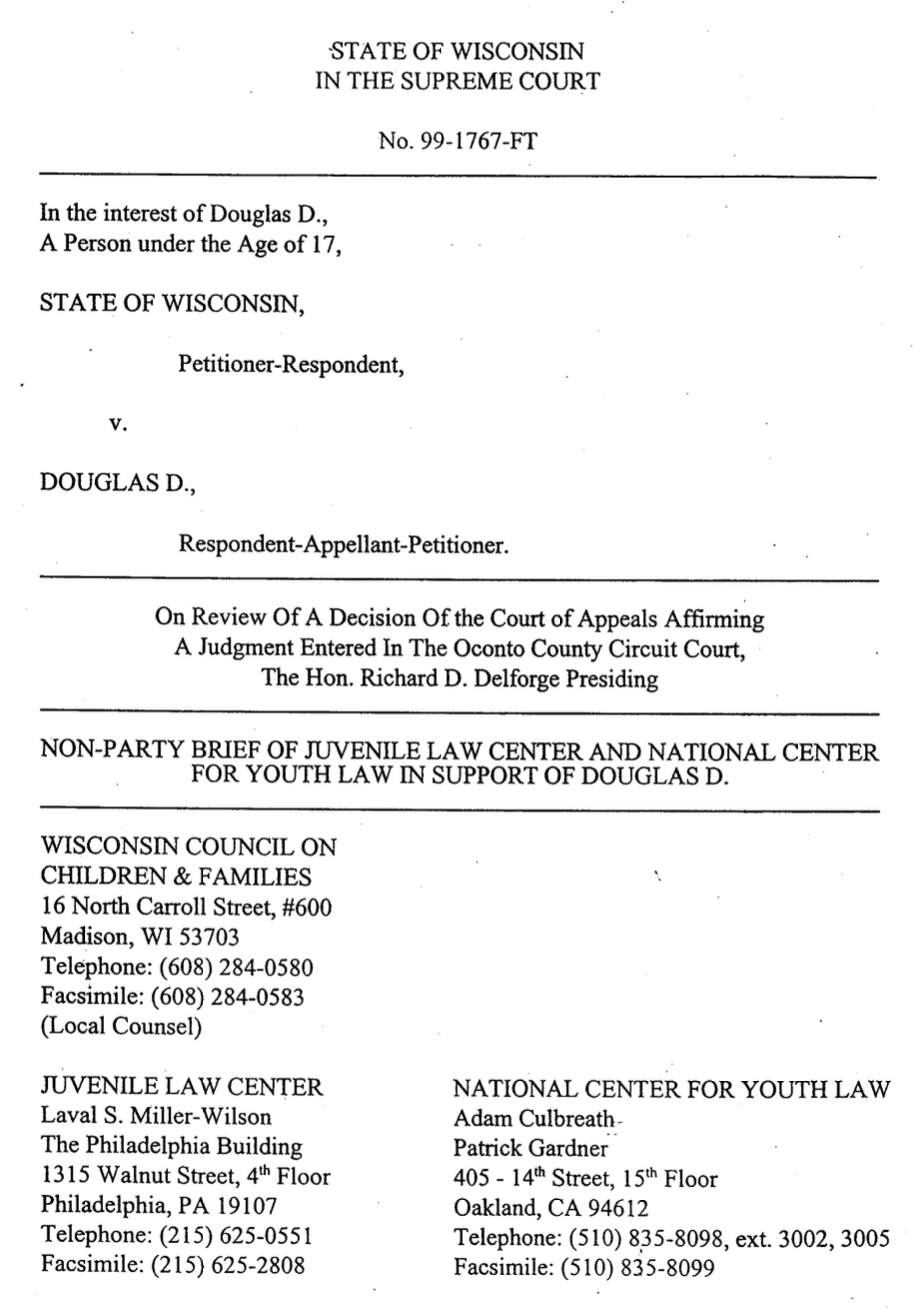
Summary of Argument
Schools are among the safest places for our children to be. Yet, driven by the misperception that school violence is on the rise, school officials, legislators, law enforcement and the courts are increasingly taking on the issue of school safety in a heavy-handed manner. However, punitive measures, administered without judgment or balance, as evidenced in "zero tolerance" policies, criminalize minor transgressions and expose our children to a juvenile justice system ill-suited to deal with youthful indiscretions.